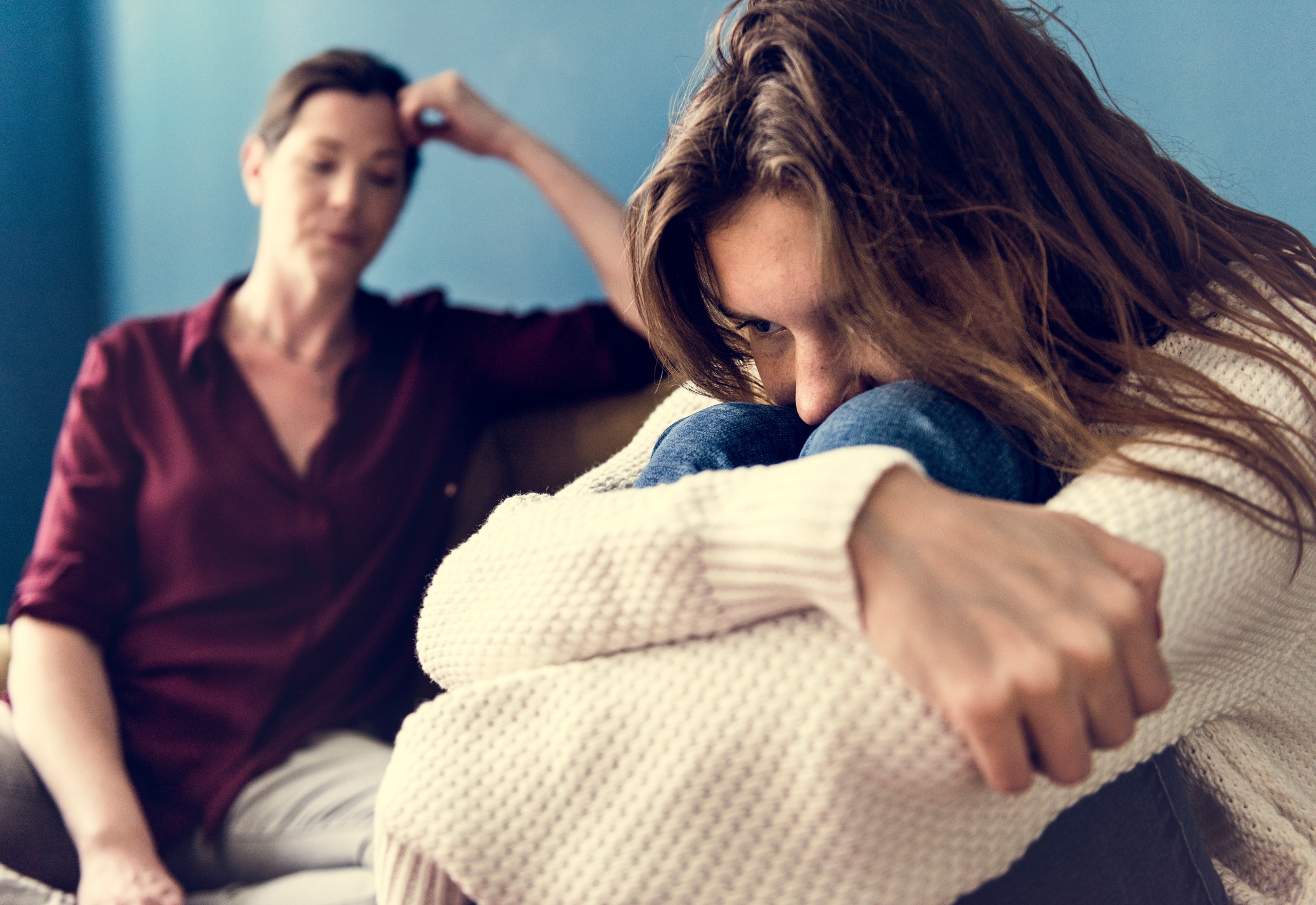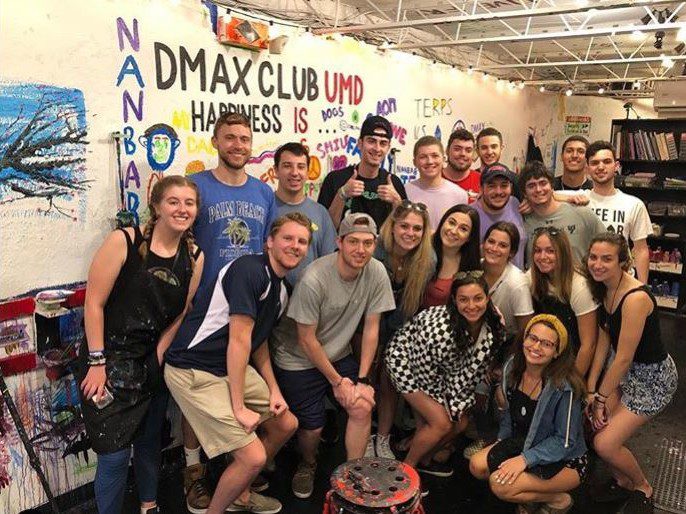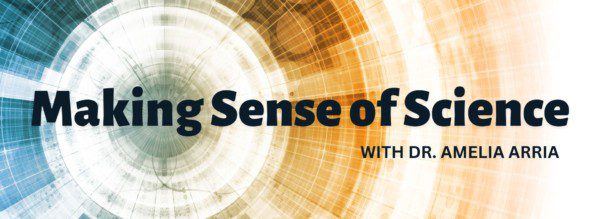Phone calls with her father lately were starting to leave Paige, a college junior in Texas, feeling stressed and confused. His questions about her grades had expanded to include concern about her progress on internships and jobs, with an undercurrent of tension about finances. She was starting to worry about whether there were funds for her to finish school.
“He was always talking about taking extra shifts at work,” Paige said. “He said I shouldn’t be stressed about it, but how could I not be? I could tell he was.”
Anxiety affects 40 million adults in the U.S., and an estimated 31% experience an anxiety disorder at some time in their lives, according to the National Institute of Mental Health. This fall, for the first time, the U.S. Preventive Services Task Force drafted a federal recommendation that primary care doctors should routinely screen adults for anxiety. The task force called its recommendation a public health priority, given the increased threats to health and well-being brought on by the pandemic.
Much of the recent public dialogue about mental health has focused on young people, and for good reason: Between setbacks in learning and in social development, youth academics and mental health have suffered. But adult wellness crosses over into this terrain, too, because a parent’s anxiety impacts the whole family, including young-adult children in college.
Students are Emotional Detectives
College students don’t have to be standing around the kitchen counter with their parents to sense household anxiety. The air crackles with it during phone conversations. They read between the lines of what’s said, and what’s left unsaid. And if they don’t know exactly what’s amiss, it’s natural for the mind to fill in the blanks in the absence of information and imagine the worst. Illness. Divorce. Job loss. Legal or financial problems. Trouble in any of its guises.
From the earliest years, children are emotional detectives, looking to their parents to determine what constitutes cause for concern — a furrowed brow, tight body language, a tense voice. That hard-wiring enables them to track a problem or danger to its cause. And this astute skill becomes part of their emotional toolbox for life.
“Starting when children are very young, their first language is emotion, tuning in and absorbing the emotion experienced within key relationships. And typically, parents are the critical primary relationship,” said Dr. Donna Housman, founder of Housman Institute, dedicated to infusing education with the building blocks of emotional intelligence and social emotional learning (SEL). “Children in college are still sensitive to the emotions of their parents.”
Parental anxiety comes in many forms, from any number of sources – from acute to chronic, taking the form of micromanaging or overprotectiveness. The anxiety might not have anything to do with the young-adult child away at college. But they still have a finger to the wind, consciously or unconsciously, to determine which way it’s blowing and how much damage it might carry.
“We see kids who are dealing with all kinds of parent anxiety, and we’ve seen many, many ways parents’ wellbeing impacts students,” said Susan Knoll, care coordinator for Franklin and Marshall College. These can take diverse forms for first-generation college students and international students, she noted, and those who’ve left behind financial or caretaking responsibilities to help extended family members. The way these pressures are processed and internalized depend on the way the family communicates responsibility, guilt, generosity, and worry.
“Sometimes you wish you could work with the parents, but we can’t, because that’s not our primary focus,” said Knoll. “We have to just take each student individually, and say, ‘What do you need right now? Do you need to drop a class? Do you need a leave of absence?’ It’s our job to support them however they need it.”
“From the earliest years, children are emotional detectives, looking to their parents to determine what constitutes cause for concern.”
Helicopters and bulldozers
For as long as children have been leaving the nest, there have been parents who struggle with letting them go. College administrators, faculty, and counselors have seen the gamut of helicoptering in action, from grades, majors, and career steps to social life, housing, and diet. For almost two decades, parents had been managing nearly every aspect of their child’s life. When that child leaves home for college, some are challenged to let go gracefully.
“We’re in a weird time. Parents are so worried about their older children being able to handle their own lives, and students pick up on that anxiety and are unable to get out from under the helicopter,” said Rick Warner, a history professor at Wabash College in Crawfordsville, Indiana. “It can be hard for the students to let go themselves, because they’re used to having so many of these things taken care of for them.”
After 24 years of teaching at the men’s college, Warner has a strong vantage point on the evolution of masculinity — young men’s independence from parents, and their growing understanding of their own emotions.
“Sometimes they’ll come to me to talk about family issues that affect them. They’re finally getting distance from home, having space to think about issues with their parents more clearly,” he said. There have been instances of students coming to him to discuss problems they perceive with their parents’ substance use, as Warner has been open about his sobriety, and offers himself as a sounding board. “It’s one of the things happening at home, but it isn’t limited to home – the kids are definitely aware of it, and concerned,” he said. “This is an interesting generation of young men. It’s easier for them to have conversations about what causes them anxiety. In a way, we’re really smashing the walls of old masculinity, and while they’re separating from their parents, preparing a way for the new masculinity.”
A Covid copter
For parents who had difficulty letting go when their student first left for school, Covid was a rewind button. With students sheltered at home, parents were once again privy to the daily workings of their lives: academics via Zoom, and hours spent studying (or not); seeing whatever form their socializing did or didn’t take; the amount of time spent online, watching shows or gaming; a wide range of healthy and unhealthy food, sleep, and hygiene habits. And parents were pulled back into active involvement, and worry.
“I think Covid really impacted the levels of parent anxiety, which also really impacted students, because parents had access to their child’s college classrooms and lives that they never had before,” said Knoll. “In some cases, they had to start becoming responsible for their child’s education and wellbeing again, filling that role that schools did.”
Having that proximity to the student’s side of the remote blackboard, and seeing how well they did or didn’t manage, made it difficult for some parents to loosen the reins afterward. This was particularly difficult for those highly attuned to academic and career success.
Julia dePeyster, an academic and career coach, finds that well-meaning parents can risk overwhelming their young-adult children with a constant flow of ideas, suggestions, and check-ins. DePeyster is the founder of Entry Level Career Coaching, which helps students from their teens through 20s with identifying and achieving their goals.
“What I’ve noticed is that when an anxious parent micromanages their children, they become less of a good communicator. They might pepper them with a daily stream of ideas and questions, links to jobs online, and what gets transferred along with the anxiety is the number of directions and lack of decision-making,” she said. “If you want your children to remain high-functioning, take a pause, and put your thoughts in cohesive order in one bundle, once a week. If you communicate from an un-gathered place, you aren’t helping your own anxiety, and you’re transferring it to them.”
The result: Anxious students are at high risk of “task paralysis,” a state when people are overwhelmed by a large, diffuse to-do list, and view it as a threat. That threat elicits a fight, flight, or freeze response, according to Ellen Hendriksen, a clinical assistant professor at Boston University’s Center for Anxiety and Related Disorders. Paralysis can be the freeze response to the fear of failure, letting others down, or feeling incompetent because they don’t know where to start.
“This can get hard for students to manage,” said Markie Pasternak, Senior Manager of Education with Active Minds, an organization dedicated to student advocacy in mental health. “They can think their parents’ anxiety is caused by their perceived lack of accomplishment or success in school, and that they’re not measuring up. And that adds pressure to a student’s own anxiety at school.”
Chronic parental anxiety
Some parents are anxious by nature. And to them, the world can look like a minefield. All kinds of things look like a threat to their child, from campus safety and episodic gun violence to political extremism and racial hate. The way their mindset manifests itself in the household, shaping the family landscape from when the children are young.
Jen is a mother in Massachusetts whose own experience in college was marked by the assault of a friend by someone the friend knew well. She acknowledges that it had a profound effect on her sense of safety and caution; she went on to become a blackbelt in karate, and later, encouraged her high-school-aged daughter to learn karate, too. When the daughter, Mia, was preparing to attend college in Boulder, Jen “began to spiral.” Although she’d told Mia about what had happened to her friend, Jen was concerned that she didn’t take it seriously enough, so she shared some journal writings to make it more real.
After Mia began school, there was an assault of a first-year student on campus, and she began to second-guess being on a large campus in a city. She is now considering transferring to a smaller school closer to home. And Jen now wonders how much her own perspective has affected her daughter. “I worry that that it might have been too much,” she said, “and that she isn’t putting herself out there as much as she could.”
“There’s a real power in communications between a parent and child, including the potent emotions of the parent,” said Donna Housman of Housman Institute. “That’s why it’s so important for adults to be self-aware, able to separate what we’re sharing as information from what we’re feeling emotionally as our experience. Not everyone has to share our experience.”
If there is a healthy relationship between a parent and child, the young-adult student knows they can trust the parent’s perspective and rely upon their judgement. If they are uncertain about whether they can trust the parent’s point of view, they are essentially being raised with an unreliable narrator.
“If a parent’s emotional response to anxiety is maladaptive, the child can’t rely on them, and they lose a key pillar of their support network,” said Kathryn Sabella, a member of the University of Massachusetts Chan Medical School’s interdisciplinary group, the Transition to Adulthood Center for Research. “When a child knows their parent is anxious, and feels they have to worry about the parent, they aren’t going to want to add to that burden. That means that not only are they affected by the parent, but they’re being silent about their own worries and experiences. The student doesn’t want to add to their distress even if they aren’t ok.”
In most cases, the college years are part of the natural progression toward adulthood, when students’ perspectives are being shaped by more and more outside sources. Part of spreading their wings is getting different points of view, seeing their parents more objectively, and deciding which parts of their worldview resonate with them — what they’ll hold, adapt, and discard. They begin to see their parents as human, with flaws and shortcomings just like everyone else. And they might even come around to finding value in the attributes they’d once viewed negatively — including resilience.
“My dad was always anxious, and always had to have a backup plan,” said Brooke, a college sophomore in Boston. “No matter what happened, he always made sure there was a way to resolve it or to find a way out. Because of him, I’m able to think through the worst-case scenario, and it’s never that bad. I have options. And things have a way of working out.”




